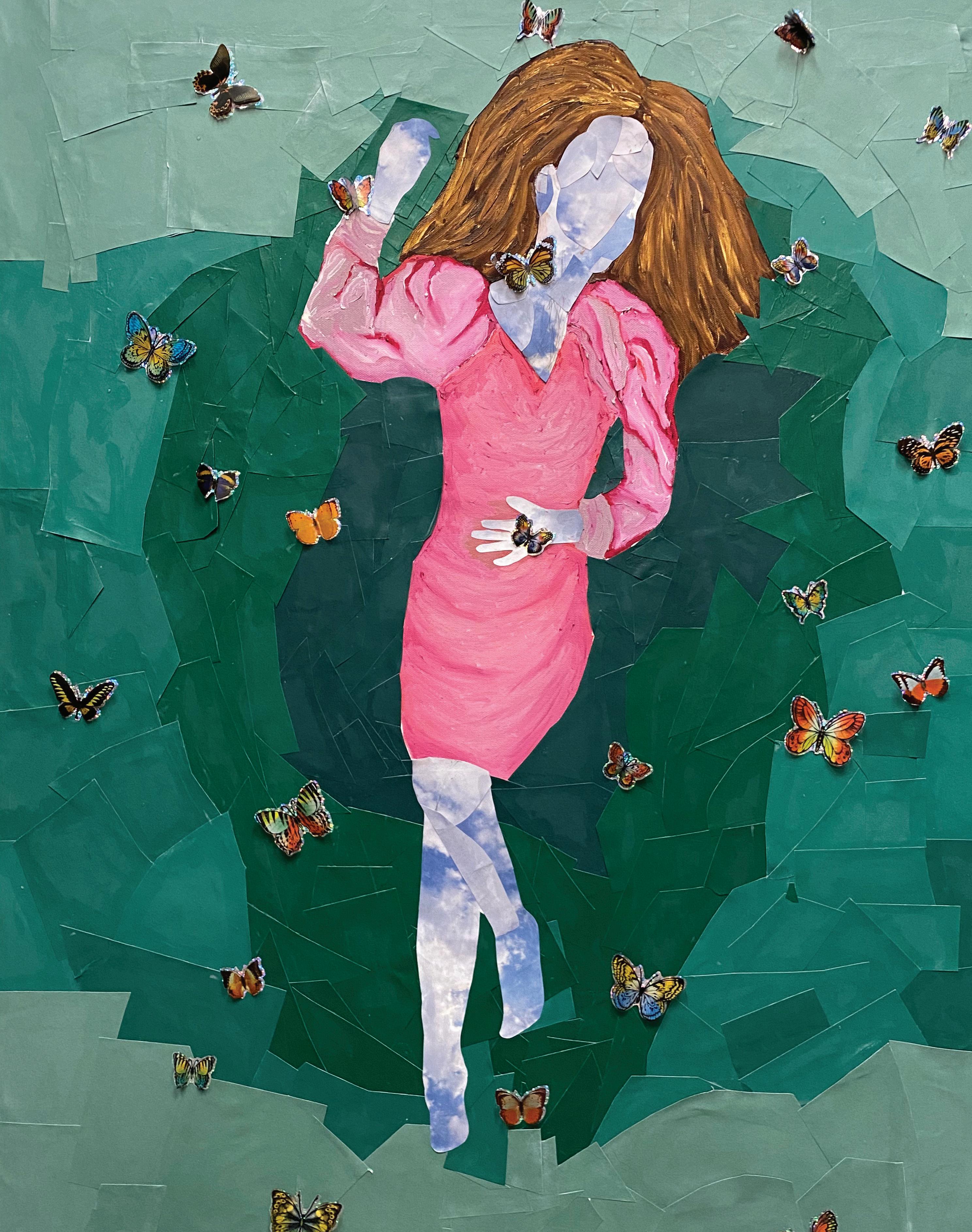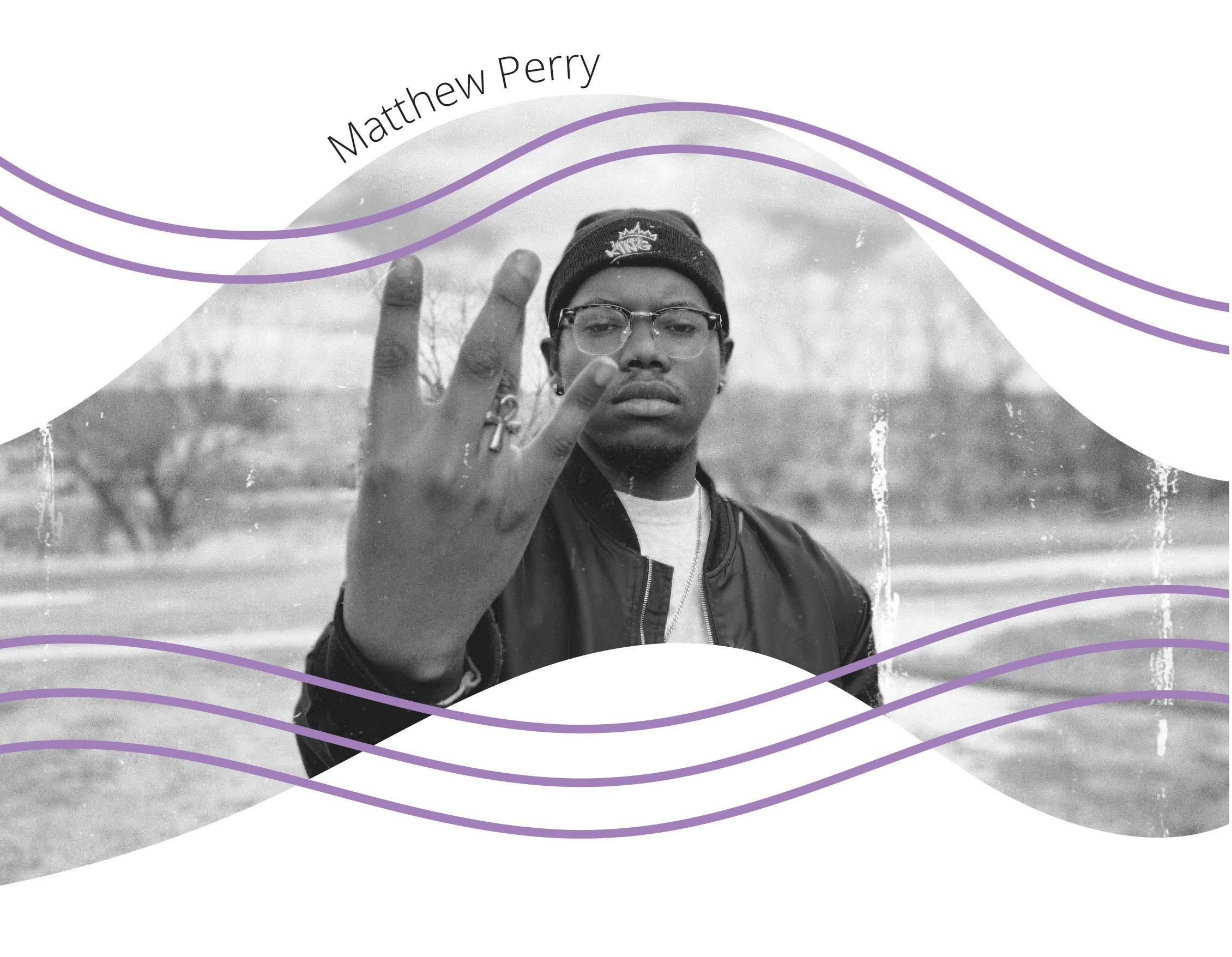
7 minute read
Taking Flight in the Modern World
Olivia Ruffe
Think Piece
Advertisement
In director Hayao Miyazaki’s 1989 film Kiki’s Delivery Service, he uses magic as a metaphor for the fundamental spirit of the self that is essential for modern society. But in the past few months, our world has seemed to lose any and all magic that it ever once possessed. As I write this article in light of recent and unspeakable events—some of which hit too close to home—it’s hard to even look back at such a lighthearted film and try to fit it into our society that seems so foreign now. When we chose Kiki’s Delivery Service as inspiration for the spring issue of Metrosphere, we were thinking about a film that evoked togetherness after a year that seemed more divided than ever. Now, I couldn’t think of how to talk about this film at all. Is the magic of Miyazaki lost in a modern world? I found myself watching the film as an escape while thinking it would inspire only hopelessness. Then, I remembered where Miyazaki’s stories came from in the first place.
The premise of the film follows a young witch, Kiki, and her talking cat, Jiji. They set off from their provincial hometown to new beginnings in a faraway seaside city of Koriko. This witch, in keeping with family tradition, must spend a year away from home to gain independence and learn new skills. At thirteen, she is overwhelmed by the new society and culture. This seems to be an innocently simple plot. Yet, the film follows the story of a shojo character, in Japanese meaning “young woman” or “girl.” The magical girl genre, or mahou shouju, had been utilized by Japanese storytellers from the fifties onward with narratives centered on female empowerment as a means of cultural
and social restoration. In the wake of WWII that saw horrific warfare, Miyazaki and other storytellers were confronted with a confused cultural and social identity of post-war Japan. They wished to empower young persons to participate in a productive and peaceful modern world. Almost forty years later during Japan’s economic boom of the eighties, this magical girl genre enabled a focus upon intelligent and adaptive shojo characters as opposed to the common heroic tales of violent male protagonists.
It seems violent male protagonists are the only main characters in our world today.
But Kiki is one such magical girl whose story has much to say about the common struggles of youth and coming of age in a modern world. The film gets at the heart of confronting adversity and the inherent challenges of growing up in modernity, finding purpose and determination, as well as seeing oneself as a meaningful participant within a community—and Miyazaki does it all without the overwhelming, antagonistic forces common to a Western hero’s journey. On its surface, the film seems too polite in its portrayal of life, but don’t let that fool you. Kiki’s Delivery Service honestly depicts the challenges a young person faces, yet with a fairytale touch that provides a vision of life with more humanity than evil. This humanity is reflected most in the unique characters Kiki comes across that are defining to her coming-of-age journey. There’s Tombo, a local teenage boy who helps her out of trouble and is enamored by her magical abilities—but Kiki isn’t too smitten. He spends the film attempting to win her favor. She finds a place to stay with a kind pregnant woman, Osono, who owns a bakery and allows Kiki to run her own flying broomstick courier service out of the attic. Kiki is thrown straight into the working world. On one such delivery, Kiki loses an important gift in a dense forest after a murder of crows attack. During her retrieval of the gift, Kiki befriends Ursula, a free-spirited artist who lives in a cabin in the woods. Tombo, Osono, and Ursula, more than supporting characters, become analogies for the love, friendship, mentorship, and artistic freedom that are essential to Miyazaki’s spiritual and philosophic view of growing up.
Where you may be searching for the film’s evil forces, you’ll find that the antagonist is Kiki herself. She’s confronted with feelings of envy and self-doubt. She develops a jealousy toward the other young people in her town who hang around Tombo. She becomes self-conscious of her everyday attire: a black dress with a red hair bow. Gazing at some expensive ruby slippers in a shop window, she longs for one day to have the money to buy them after spending her funds on groceries.
Her magic is never used for wish-fulfillment or self-serving spells. She never gets back at anyone or steals. She must use her powers to serve her community, and she works for everything that she earns. Thus, when Tombo later visits Kiki and invites
her to a party, she first must complete a delivery. Racing against time, she helps an old grandmother finish her herring pie and delivers it through a rainstorm to an ungrateful granddaughter at the party she was to attend. Soaked and discouraged by the girl’s snobbish attitude, Kiki goes home and leaves Tombo waiting for her in the rain. Through all of Kiki’s trials, the film shows us that the magic we possess may make us the outsider, but we can and must always find use for ourselves in our community. Our powers come from an internal rather than an external force.
This message is emphasized as the story progresses, and Kiki warms up to Tombo. They soon become friends, but Kiki is still resistant to the other teens who can’t understand her working-girl spirit. It is at this moment that a fundamental change occurs in Kiki’s character. Kiki cannot understand Jiji. Then, trying to mount her broomstick, Kiki cannot fly anymore. She is brought from the wispy skies of dreamy youth down to the hard ground of reality. She does not know why she has lost her powers, but she is spiritually defeated.
“If I lost my magic, that means I’ve lost absolutely everything.”
-Kiki Ursula comes to town and takes Kiki back to her cabin with her. Here, Ursula imparts a mentor’s wisdom that speaks directly to the viewer about the struggles of creativity, meaning, and self-actualization. It isn’t the skill Kiki has lost, but her spirit. Miyazaki’s message is revealed here: it is the soul, vital spirit, or essence of the self that is essential to humanity and that no one can ever take away from you.
“The spirit of witches. The spirit of artists. The spirit of bakers! I suppose it must be a power given by God. Sometimes you suffer for it.”
-Ursula
Here God means the breath of life itself—our lifeforce. But this isn’t one of permanence. Instead, the film conveys another spiritual version of the self as one of impermanence. We constantly grow, gain, and change while at the same time leaving things behind. By the film’s end, Miyazaki highlights the importance of moving on but not without the nostalgic remembrance of what once was. This nostalgic tone for a past gone by often underlines much of Miyazaki’s work, but this nostalgia is never a longing for a return to that past. Rather, it is a reminder that the places from which we came can be remembered in the
present and are essential to shaping our modern identity, but we should not dwell on their return. Ultimately, the world will sometimes be quite foreign— even the places that are the most familiar to us—but we have a spirit that, after suffering, can heal. Our soul is regenerative.
Watching Kiki’s Delivery Service reminded me of these very simple lessons after a loss of basic vitality. The film imparts on a viewer a hopeful image of the modern individual who has a meaningful personal history and important social role in their little sliver of the world. If there is anything to be taken from this 31-yearold film today, it’s that the world is cruel and life is fragile, yet both are infinitely valuable. I think many of us today may wish we could be seeing things again as children. However, in times of adversity, we can all remember something from Kiki’s little utopia that our non-utopian world can often make hard to forget. Care for your neighbor, support your community, look beyond the superficial, and, ultimately, have faith in yourself that when you think you’ve lost all the magic that you ever possessed, your vital spirit is always going to be within you, right where you left it.
“Yet, even amidst the hatred and carnage, life is still worth living. It is possible for wonderful encounters and beautiful things to exist.”
-Hayao Miyazaki









